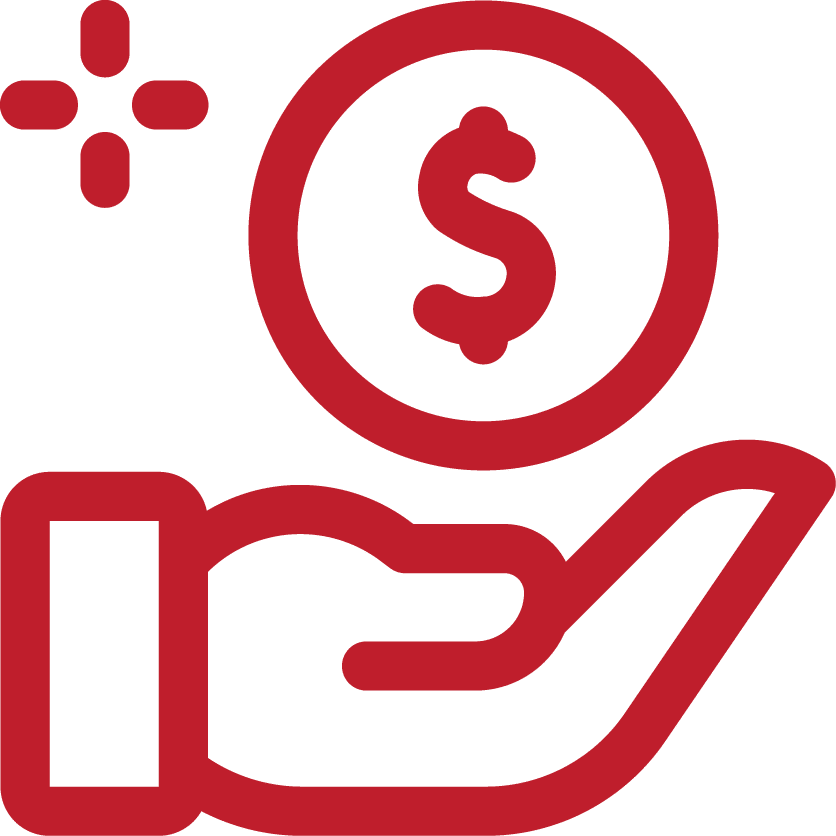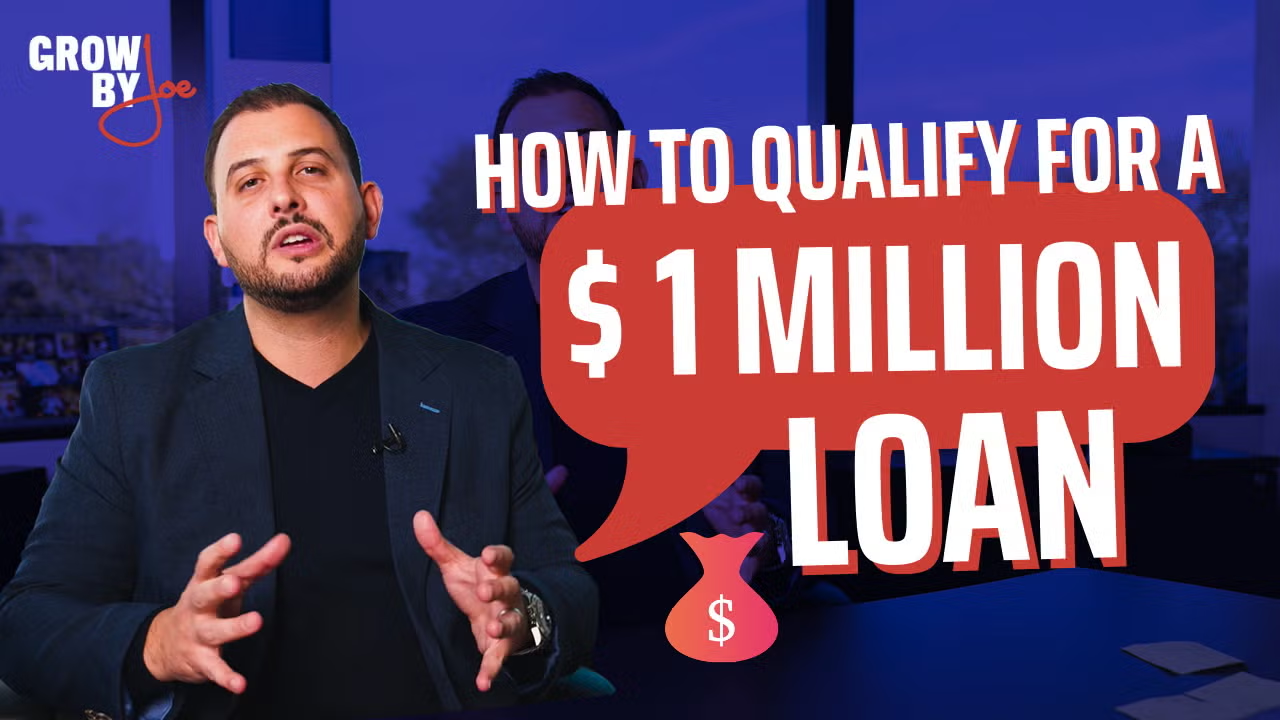$1 Million Business Loans
Growth isn’t cheap, and leveraging your cash flow can only take your business so far. If you’re truly committed to growing and scaling, there comes a point where you’ll need additional funding to make investments on your timeline.
Cash comes and goes, but with a business loan, you can give your business an influx of capital when you need it most. Whether you choose a term loan, a business line of credit, or revenue-based financing to reach your goals, you’ll have to ensure you’re working with the right lender to maximize your benefits.
With National Business Capital, you can apply to multiple lenders with one streamlined application. Our expert Business Finance Advisors assist you in choosing the best offer for your specific circumstances, and we’re always available after the funds are in your hand to help with additional capital needs in the future.
If you’re looking for a $1 million business loan, you’re in the right place. Read on for everything you need to know about $1 million business loans.
$1 Million Business Loan Qualifications
1 Year in Business
$500,000 in Annual Revenue
No Minimum Credit Score
Benefits of $1 Million Business Loans
Business financing is an advantageous way to invest in revenue-driving opportunities and solve challenges without jeopardizing cash flow. Here are a few of the most notable benefits:
- Stronger purchasing power
- Steady cash flow
- Variety of financing options to reach your desired funding amount
- Ability to negotiate your contract and tailor terms to your unique situation
- Liquidity to invest in your business on your schedule
- Tax benefits on some financing products
Although you have to pay back what you borrow, securing a business loan provides the resources you need to start and manage your growth plan. You don’t have to wait for your cash flow to support your plans; You can quickly secure and invest cash into the areas of your business that drive the most profit.
$1 Million Business Loan Qualifications (Explained)
Whether you’re looking to expand operations or take on a new direction entirely, a $1 million business loan can help you jumpstart your next phase of growth. But, before you can access funds, you’ll have to go through the application process.
Your likelihood of obtaining a $1 million business loan depends on the lender and your own financial criteria. Banks and credit unions tend to have rigid requirements. Online lenders, or fintech lenders, tend to be more lenient.
If you’re working with a bank or credit union, at a minimum, you’ll have to provide the following.
- Business credit score (700 or more)
- Personal credit score (700 or more)
- Bank statements (going back at least one year)
- Business plan (including information on your industry, competitors, growth strategy, etc.)
- Business history (at least 3 years)
- Cash flow
- Collateral
- Entity type
- Profit margins
- Revenue levels
Banks and credit unions impose these strict requirements because they want to minimize risk. They want to know that your business is financially capable of managing payments and that your industry is positioned for growth.
Lenders also want to protect themselves in the event of a crisis – which is why many will insist on collateral. Collateral can be any asset you own that is of value. It goes towards securing a loan and ensuring the lender receives financial protection in case borrowers are unable to make payments.
Businesses looking for more flexible financing solutions should consider online lenders or fintech lenders. These lenders maintain a larger selection of financing products for all types of businesses. They also have options for candidates with lower credit scores and shorter business histories.
Plus, online lenders work fast. The application and approval process takes hours, whereas banks and credit unions can take weeks.
How to Get a $1 Million Dollar Business Loan
You can secure business loans from banks, credit unions, and non-bank lenders. Here’s a breakdown of the steps you need to take.
- Identify a need for funding
- Research lenders, their qualifications, and available programs
- Find 5-10 top choices
- Apply with each
- Review and compare approvals
- Negotiate terms (if necessary)
- Finalize a contract and receive your funds
If you’re working with a bank, expect the approval and negotiation process to last much longer than with non-bank lenders. Although banks and credit unions come with lower rates, the speed of their underwriting often leaves business owners waiting 30 to 90 days to hear back.
Non-bank lenders are much faster. Their rates are higher, but many entrepreneurs are turning to non-bank options because of the speed and simplicity of their process, especially in the high interest rate environment of 2023.
There’s no “best” lender for every business. If you’re looking for the best offer, you’ll need to apply with both types of lenders and review your approvals. Or, if you want the fastest process, work with a marketplace to receive multiple financing offers with one application.
How Much Will a $1 Million Business Loan Cost?
How much you’ll pay in interest and fees on your $1 million business loan depends on several factors, including your credit score, the type of lender, the length of the loan term, the type of loan, and more.
Interest rates vary depending on your business’ unique criteria. Applications with solid credit scores, strong revenue, and collateral are more likely to be approved for lower rates. Applicants with less impressive financial criteria may also qualify for funding but will probably have to contend with higher costs.
Banks and credit unions tend to offer lower rates than online lenders. However, they also make it more difficult to obtain financing. Certain loan products, such as term loans or SBA loans, are generally less expensive than lines of credit.
Loans with shorter repayment periods come with higher monthly payments but tend to charge less in overall interest. Long-term loans have lower monthly payments, but interest over the entire duration of the loan tends to be more expensive.
On average, most lenders offer interest rates between 6% to 12%. SBA 7(a) loans generally feature the lowest rates, at about 6%.
Who Needs a $1 Million Business Loan?
There are a variety of situations where a business would need a $1 million loan. Here are a few examples of how specific industries have leveraged financing to achieve their goals.
- Construction – Purchase upfront materials, invest in technology, upgrade equipment, and hire additional workers to maximize profit during their busy season
- Restaurants – Expand to new locations or renovate an existing location to increase capacity.
- Manufacturing – Outfit your warehouse with the latest equipment and technology or secure a bulk discount on materials to maximize ROI.
- Medical – Invest in new equipment, diversify care by purchasing cosmetic equipment, or hire/train new staff to increase productivity.
- eCommerce – Redesign your website or establish a physical location to strengthen brand awareness
These are just a few of the many ways entrepreneurs can apply $1 million business loans to grow and scale their operations. As long as you have a $1 million opportunity or challenge, you can leverage business financing to secure the funds you need to grow – and preserve your cash flow for future endeavors.
Purposes of a $1 Million Business Loan
There are many ways to use a business loan to grow and scale. Here are a few of the most popular:
- Invest in revenue-driving opportunities
- Solve challenges
- Expand, renovate, or update locations
- Purchase equipment and other business assets
- Bridge capital gaps
- Hire/train additional workers
- Start marketing campaigns
- Improve systems and processes to increase efficiency
- Buying inventory in bulk to secure a supplier discount
As you grow, opportunities and expenses will likely cost more than they did during your startup stage. Call them growing pains, but know that this is a natural development for all growing businesses.
The investments you made along the way might not be what you need to reach that next level. If $1 million stands between you and your business’s full potential, you should consider using a loan to fuel your business’s next stage of life.
5 Types of $1 Million Business Loans
There are a variety of $1 million business loans to choose from. Each lending product features different interest rates, repayment schedules, and more. Some loan types may be better suited for specific situations.
| Type of Financing | Description |
| Business Term Loan | Business term loans provide a single, lump sum of capital you’ll pay back in regular installments over a set time frame. Timeframes can range from 5 years up to 25 years for a $1 million funding amount. Term loans come with fixed interest rates and predictable monthly payments.
Term loans are ideal for one-off investments where you know exactly how much money you’ll need. Many businesses use term loans for real estate purchases, equipment financing, debt refinancing, and more. |
| Business Line of Credit | A business line of credit is a type of business loan that works similarly to a credit card – albeit with lower fees and higher funding amounts. Borrowers have access to a pool of funds which they can withdraw from – up until their credit limit – as needed.
With a $1 million credit line, you’ll have the option to use all of the funds or just a smaller portion. You won’t have to pay interest on the funds you don’t use. Many businesses opt for lines of credit when they value flexibility or don’t know the exact funding amount they’ll need. Business lines of credit typically feature fixed interest rates and don’t have a set payment schedule. Depending on your lender, you may have the option of fixed installments or monthly minimums. |
| SBA 7(a) Loan | The Small Business Administration (SBA) offers loans up to $5 million. These loans are partially government-backed. Meaning the government agrees to cover a portion of the loan amount in case you default. Lenders appreciate this additional security and offer lower interest rates as a result.
Unfortunately, SBA loans can also be very difficult to obtain. The SBA maintains strict eligibility requirements. |
| Invoice Financing | Also called accounts receivable financing, invoice financing allows business owners to exchange unpaid invoices for cash. Funding is usually fast and easy. Credit score, business history, and other factors tend to weigh less for invoice financing.
Fees associated with invoice financing can be high, and it’s unlikely you’ll receive 100% of the value of your unpaid invoices. |
| Revenue-Based Financing | While not a loan, revenue-based financing provides a lump sum of funds for a business to manage over a short term schedule. Borrowers repay the amount through small deductions from their daily sales, which aren’t static and correlate to your daily profitability.
Funding times are fast, and qualifications are less intensive because your credit score matters less than your annual revenue. The funds can be subordinated, too, which can help preserve banking relationships while you push for maximum growth. |
$2 Billion Financed
Since 2007, National Business Capital has accelerated business growth nationwide
Frequently Asked Questions
Businesses can offer equipment, real estate, inventory, accounts receivable, and other valuable assets, like investments, to secure their financing. Collateralizing an asset gives a lender an extra layer of protection against defaults, which can improve the interest rate, terms, and funding amount on your financing contract.
Your interest rate depends on a variety of factors, including
- The financial background of your business
- The economic conditions surrounding your transaction
- Whether you’re offering collateral
- The value of any collateralized asset
- The length of your repayment term
If you want to secure the best rate, make sure you apply with multiple lenders and compare your approvals. This way, you can find the most competitive option and maximize the benefits of each borrowed dollar.
Absolutely. First and foremost, you want to make sure you’re taking a loan for the right purpose. Simply “throwing money” at a problem won’t yield results. By using a loan in this context, you can potentially sink yourself into worse debt, as the investments you’re making won’t yield adequate revenue to offset the cost of your capital.
Once you’ve identified a strategic purpose, you also need to ensure your contract doesn’t overwhelm your business. Taking a rate that’s too high or a repayment schedule that’s too frequent can make it difficult to repay what you’ve borrowed and – most importantly – put you in danger of defaulting.
Risk management is important. If you’re concerned about the risk you’re taking on with a loan, speak with the expert Business Finance Advisors at National Business Capital for more information.





